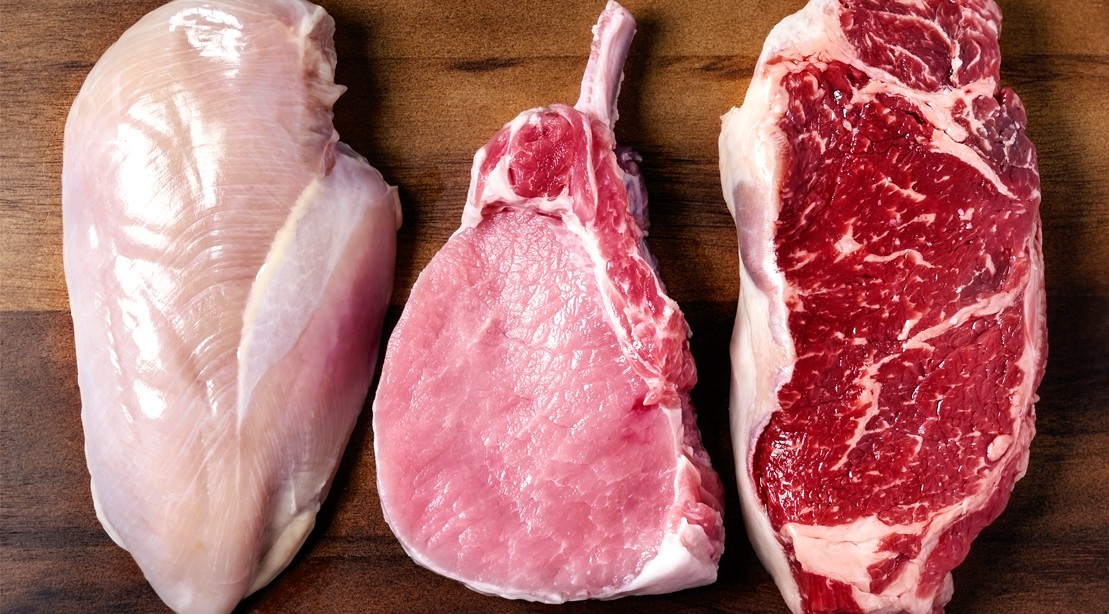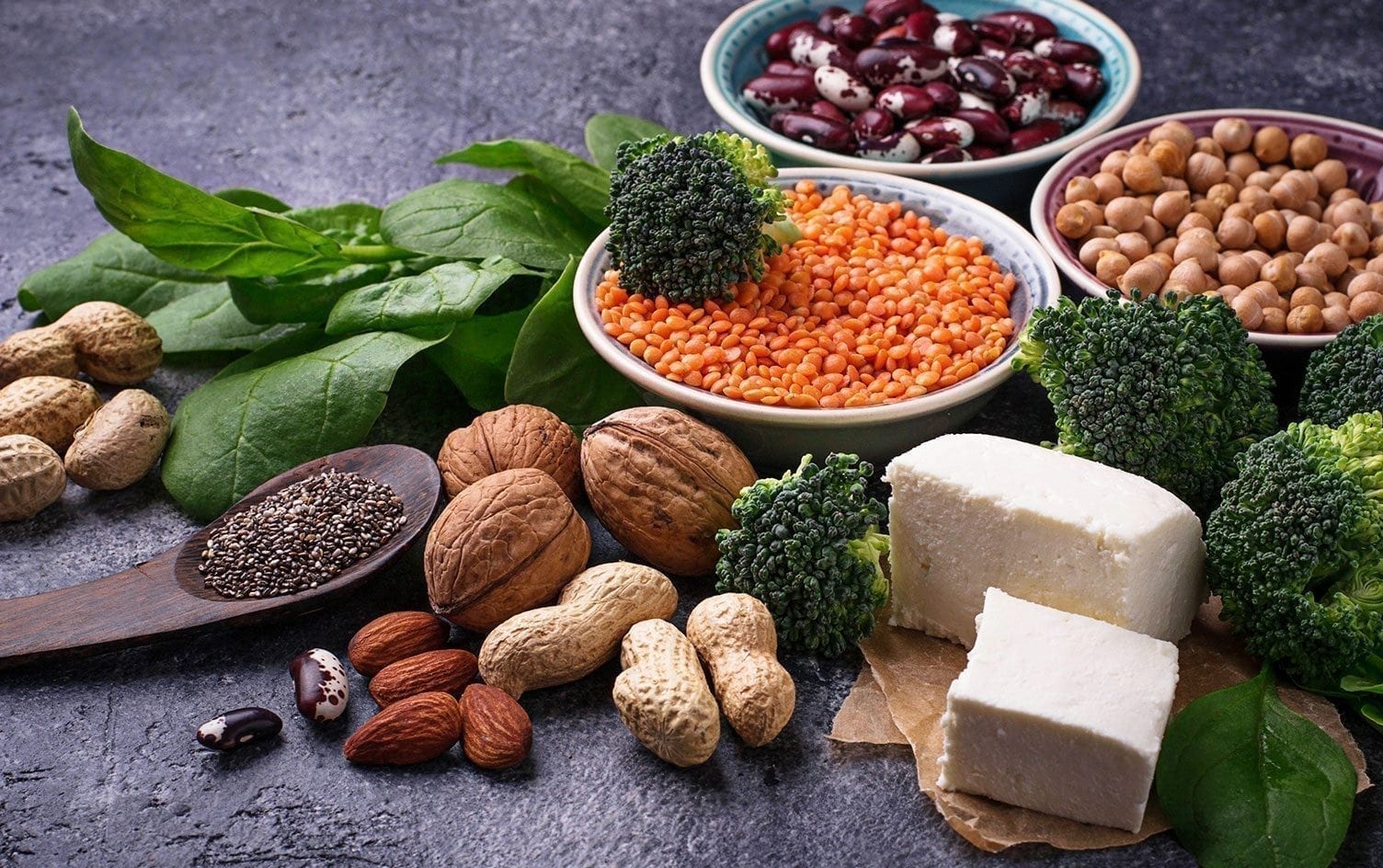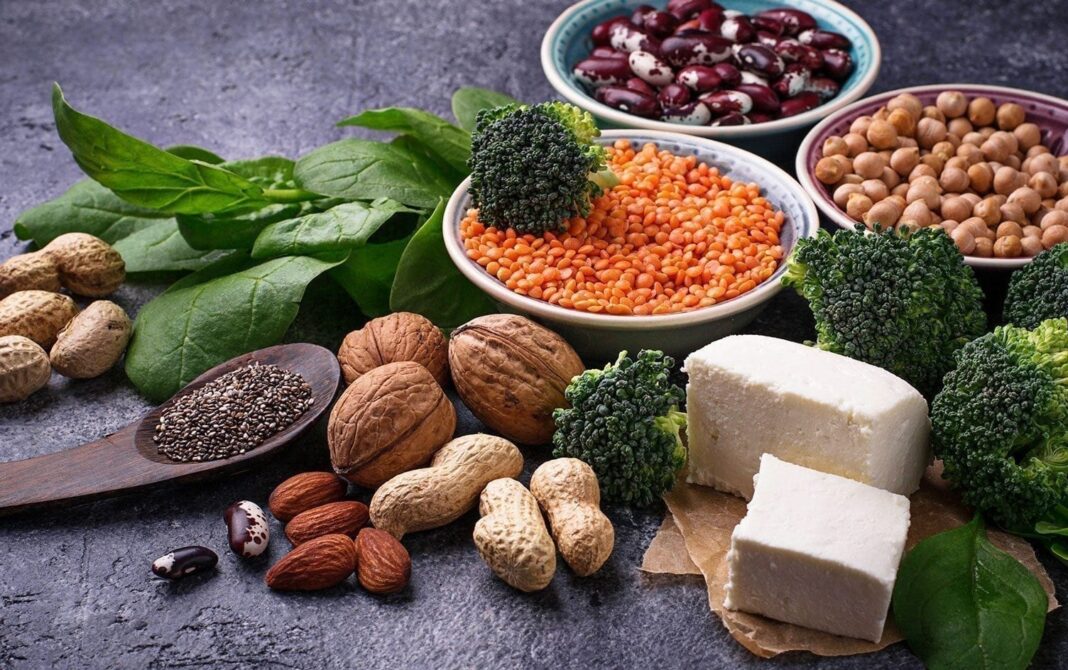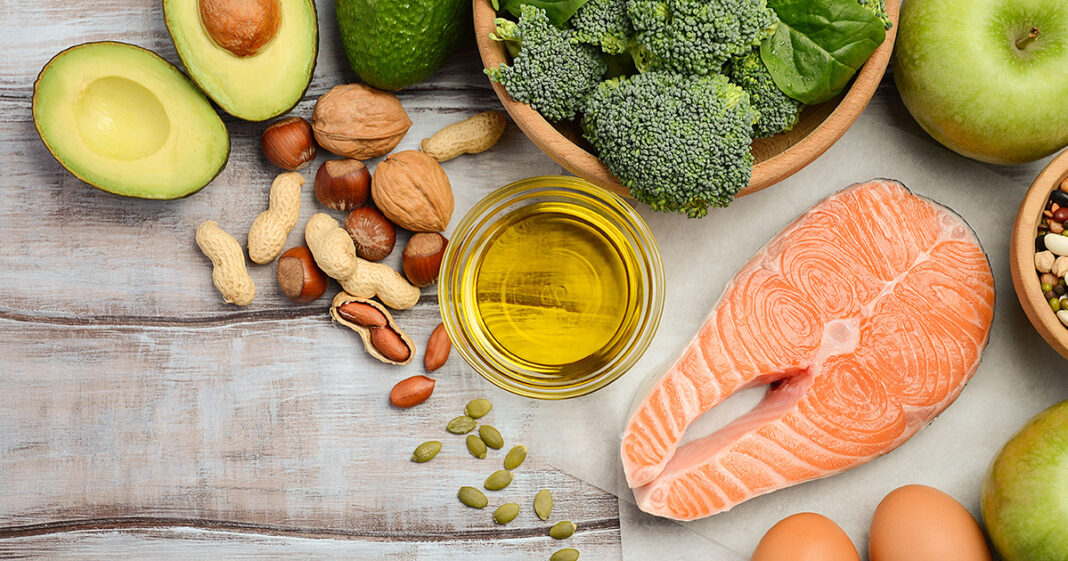Meat Vs. Plant Protein
You have to realize that over 20% of your body consists of proteins. Since your body doesn’t naturally produce and keep protein, it is imperative for you to garner an adequate amount from your daily diet.
Protein is obtainable from multiple sources of food, such as animals and plants. When you consume proteins, your body will break them down naturally into amino acids.
To maintain good health, you need to have the right balance and atmosphere of all the 22 amino acids.
Here, the amino acids are broken into non-essential and essential amino acids. Here, while the body can create amino acids that are non-essential, there are over 9 essential types of amino acids, which your body doesn’t produce.
To acquire these 9 essential types of amino acids, the body requires plant or animal proteins in your diet.
So, any foods, which possess any one of these 9 essential types of amino acids, are identified as a full source of protein.
What Is Meat or Animal Protein?
Meat protein refers to beef, chicken, turkey, canned tuna, pork loin, fish, eggs, milk, and much more.
They offer all the required essential amino acids, which the body needs. The amount of protein in meat is comparatively higher than the plant-based proteins for the most part.
However, there should be a limitation on the amount of meat that you consume, red meat in particular, as they are responsible for causing serious health issues such as heart illness, stroke, and even untimely death.

What Is Plant Protein?
Plant protein refers to beans, broccoli, legumes, kale, nuts, whole grains, seeds, leafy greens, etc. There are certain plants that are low in calories, but they come with a rich source of protein.
They are also lesser harmful effects in comparison to meat-based proteins. Quinoa, for instance, possess all the 9 essential types of amino acids, which you require.
People who rely on plant-based proteins tend to have a lower risk of developing sicknesses such as cancer, ischemic heart illness, type-2 diabetes, and hypertension.

Meat Vs. Plant Protein – Which Is Better?
One thing about meat proteins would be how they are complete, unlike plant-based ones. Animal proteins like meat, dairy, fish, eggs, and poultry share similarities with the proteins present in your body.
They are complete protein sources since they possess all the essential types of amino acids, which the body requires for effective functioning.
However, plant-based proteins like nuts, beans, and lentils are incomplete since they lack multiple or one of the required essential amino acids for your body.
Meat protein tends to be abundant in certain nutrients. Some of these nutrients consist of Vitamin B12, Zinc, Vitamin D, DHA, and Heme-Iron.
But plant-based proteins also contain these nutrients. Just like meat proteins, plant-based proteins also possess an abundance of certain nutrients.
You also need to be wary of certain meat types, such as the red one, because excess consumption of it will lead to serious health risks.
But the main problem lies not with red meat in general but the processed red meat. According to an observational study consisting of over 448,568 people, processed meat was connected to an increased death risk, with no effects from unprocessed meat.
There was another study of over 34,000 women, where the same observations showed up. According to 20 new studies, processed meat was linked to diabetes and heart sickness, but the same wasn’t found in unprocessed red meat.
Another study showed that substituting a single serving of red meat per day with a single serving of poultry led to a 27% lesser chance of stroke.
Which Is Better for Your Body?
You need to factor in all the nutrients to decide which protein should dominate your diet. Certain animal proteins feature an increased level of vitamin B12 and heme iron that are lacking in the plant proteins.
At the same time, there are nutrients specific to plants like phytonutrients and certain antioxidants that aren’t present in meat proteins. Meat products possess increased levels of saturated fat and cholesterol compared to plant sources.
Another crucial factor would be fiber, which is only found in plant sources. It helps in balancing out your digestive system.
The overall health of a person will improve by consuming more plant-based proteins. Choosing to incorporate plant-based proteins in your dietary plan is a healthier and smarter choice, but it is also important to include meat in your diet.

Why Is Plant Protein Better Than Meat Protein?
Here are some of the reasons why you should consider prioritizing plant proteins more over meat ones:
Minimal Heart Disease Risks – According to a study, a protein-rich diet lowers your blood pressure, risks of developing a heart sickness, and your cholesterol levels as well in comparison to a high carb or standard diet.
We come to know from the Eco Atkins trial that a high-plant protein and low-carb diet helped in reducing blood pressure and cholesterol levels compared to a low-fat and high-carb diet.
Decreased Type-2 Diabetes Risks – A small study showed that substituting 2 red meat servings for legumes three days every week bettered blood sugar and cholesterol levels in patients with Type-2 diabetes.
Blocks Weight Gain – One of the ways to prevent weight gain is by following a plant-based protein diet.
According to an observational study that consisted of 120,000 women and men, the consumption of nuts led to significant weight loss in the subjects.
Plus, eating a single serving of peas, beans, chickpeas, and lentils tends to boost fullness, allowing better weight management.
Yes, plant-based proteins dominate the meat sources when it comes to the overall health of a person. However, meat proteins do have their benefits.
For instance, low-fat dairy and fish do lead to decreased risks of heart illness. People who incorporate fish in their daily diet tend to have lesser chances of experiencing heart sickness, strokes, and heart attacks.
Consuming lean meat proteins is also beneficial for your health. Eggs are also associated with weight loss and improved levels of cholesterol.
The key is to eat a variety of foods instead of sticking with one. It is all about moderation.




